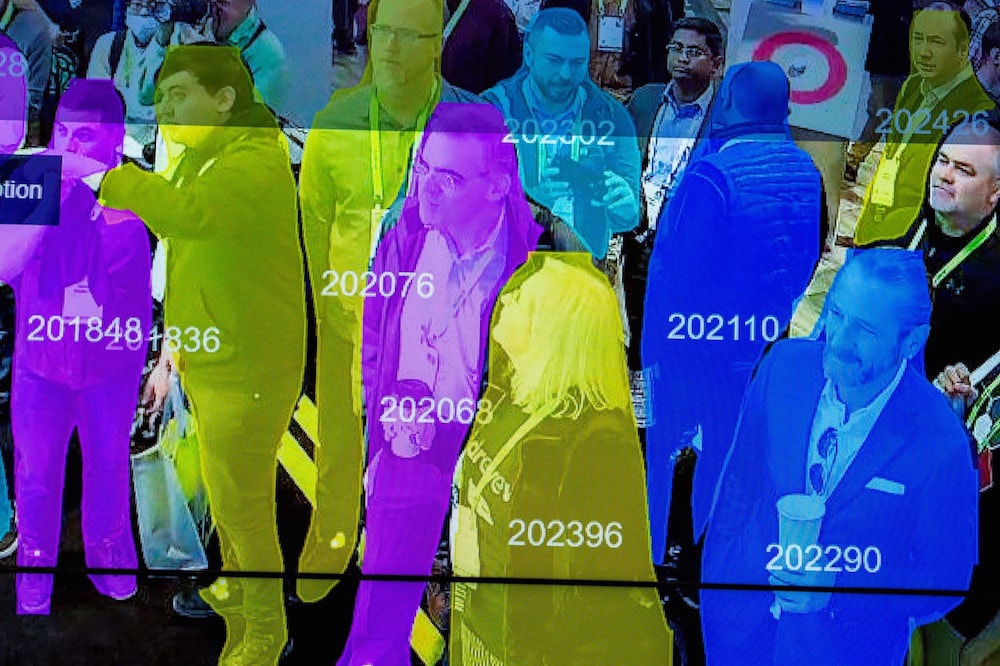Face surveillance is a growing menace to racial justice, privacy, free speech, and information security. So EFF supports bans on government use of this dangerous technology, and laws requiring corporations to get opt-in consent.
This statement was originally published on eff.org on 15 February 2022.
Face surveillance is a growing menace to racial justice, privacy, free speech, and information security. So EFF supports bans on government use of this dangerous technology, and laws requiring corporations to get opt-in consent from a person before taking their faceprint.
One of the worst offenders is Clearview AI, which extracts faceprints from billions of people without their consent and uses these faceprints to help police identify suspects. For example, police in Miami worked with Clearview to identify participants in a Black-led protest against police violence.
Clearview’s faceprinting violates the Illinois Biometric Information Privacy Act (BIPA), which requires opt-in consent to collect someone’s faceprint. Clearview now faces many consolidated BIPA lawsuits in federal court. It also faces another suit, brought by the ACLU and ACLU of Illinois, in state court. In both federal and Illinois courts, Clearview argues that the First Amendment bars these BIPA claims. We disagree and filed an amicus brief saying so in each case.
This week, the judge in the federal cases rejected Clearview’s First Amendment defense, denied the company’s motion to dismiss, and allowed the lawsuits to move forward. This is an important victory for our privacy over Clearview’s profits.
The federal judge explained that it would apply the First Amendment’s “intermediate scrutiny standard” for a restraint on activity that has “both speech and nonspeech elements.” This test originated in United States v. O’Brien (1968), which concerned the prosecution of a person who publicly burned his draft card to protest the Vietnam War. The O’Brien test considers, among other factors, whether the government has “an important interest,” and whether the speech restraint is “greater than necessary” to advance that interest.
The federal judge held that BIPA passes this test. It explained that the State of Illinois has an important interest: “facial biometrics are readily observable and present a grave and immediate danger to privacy, individual autonomy, and liberty.” The court emphasized the plaintiffs’ allegation that faceprints “are not public information.” Further, wrote the judge, BIPA is “narrowly tailored” to the government’s interest, because it protects privacy while “allowing residents to share their biometric information through its consent provision.”
EFF agrees that intermediate scrutiny is the correct test, and that BIPA passes this test. And: EFF would have taken a different path to arrive at intermediate scrutiny. As we have explained in our amicus briefs in these Clearview cases, the First Amendment protects not just expression, but also the necessary predicates to expression, including the collection and creation of information. Thus, EFF has long advocated for First Amendment protection of the right to record on-duty police. However, while Clearview’s faceprinting is entitled to First Amendment protection, these cases should be judged by an intermediate test – as opposed to the “strict” test that is even more protective of speech – because it does not address a matter of public concern, and Clearview has solely commercial purposes.
Last year, the judge in the Illinois state case likewise rejected Clearview’s First Amendment defense.
Read here the February 14, 2022, opinion of Judge Sharon Johnson Coleman of the U.S. District Court for the Northern District of Illinois in In re Clearview AI, Inc., Consumer Privacy Litigation.



